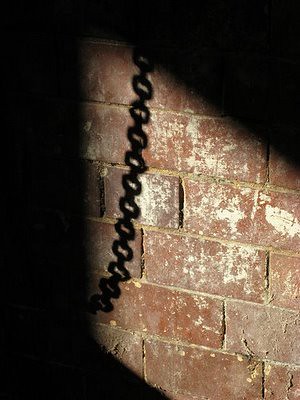Our nation has taken yet another giant step backwards with the criminalization of poverty.
Via:
How did breast cancer survivor Lisa Lindsay end up behind bars? She didn't pay a medical bill -- one the Herrin, Ill., teaching assistant was told she didn't owe. "She got a $280 medical bill in error and was told she didn't have to pay it," The Associated Press reports. "But the bill was turned over to a collection agency, and eventually state troopers showed up at her home and took her to jail in handcuffs."
Although the U.S. abolished debtors' prisons in the 1830s, more than a third of U.S. states allow the police to haul people in who don't pay all manner of debts, from bills for health care services to credit card and auto loans. In parts of Illinois, debt collectors commonly use publicly funded courts, sheriff's deputies, and country jails to pressure people who owe even small amounts to pay up, according to the AP.
Under the law, debtors aren't arrested for nonpayment, but rather for failing to respond to court hearings, pay legal fines, or otherwise showing "contempt of court" in connection with a creditor lawsuit. That loophole has lawmakers in the Illinois House of Representatives concerned enough to pass a bill in March that would make it illegal to send residents of the state to jail if they can't pay a debt. The measure awaits action in the senate.
Illinois isn't the only state locking up residents for being too poor to pay their bills. A report from the ACLU found that Georgia, Louisiana, Michigan, Ohio, and Washington were also doing this, and at "increasingly alarming rates."
A report from the New York University's Brennan Center for Justice found that states are also adding "poverty penalties," including late fees, payment plan fees, and interest:
.
Alabama charges a 30 percent collection fee, for instance, while Florida allows private debt collectors to add a 40 percent surcharge on the original debt. Some Florida counties also use so-called collection courts, where debtors can be jailed but have no right to a public defender.
Being denied a public defender seems to me would be a violation of the Constitution, but I'm no law expert. Any of you legal eagles want to weigh in?














